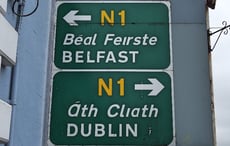A LEADING Loyalist on trial for the attempted murder of Sinn Fein leaders Gerry Adams and Martin McGuinness has dismissed his legal counsel amid claims that their relationship had broken down irrevocably. Michael Stone is facing charges that he tried to launch a murder bid on the Sinn Fein leadership during a one-man attack on the Stormont parliament in November 2006.The 53-year-old was dramatically apprehended by security staff as tried to enter Stormont buildings armed with explosives, a knife and an imitation firearm.In a bizarre letter Stone had posted to local newspapers hours before the attack he claimed that he'd planned to cut the throats of McGuinness and Adams inside Parliament buildings using a garrote.However, Stone later denied the attempted murder charges, claiming that he was actually attempting a performance art act.However, on Monday Stone's defense barrister Arthur Harvey announced that he was withdrawing from the case as there had been an "an irretrievable breakdown in the relationship between counsel and client."Trial judge Donnell Deeny refused to abort the trial in light of the withdrawal of Stone's legal counsel, but adjourned the case for four days to allow the his solicitor time to find new counsel.Earlier in the trial a British Army bomb expert told the court that the nail bombs Stone had been carrying could have caused serious damage if they had exploded.In 1989 Stone was jailed for nearly 700 years for the murder of six Nationalists, including three people killed during his attack on IRA funerals at Milltown Cemetery.Stone later claimed that he had been attempting to kill McGuinness and Adams during his one man attack on the IRA funerals.At the conclusion of his trial in 1989, during which Stone refused to give evidence, his counsel told the court that the Loyalist had effectively gagged them from fully cross-examining witnesses. Stone was released from the Maze prison in July 2000 as part of the Good Friday Agreement.He later claimed to have cut ties with Loyalist paramilitaries and that he wanted to pursue a career as an artist, which he had started while in prison.In 2002 he fled Northern Ireland with his girlfriend claiming that his life was under threat from dissident Loyalists. However, the couple later returned to the North.In 2005 he took part in a reconciliation project with Archbishop Desmond Tutu during which Stone came face to face with the family of Co. Tyrone van driver Dermot Hackett, who he had been convicted of murdering in May 1987.




Comments